How can football positively impact the lives of one million young people in the next four years? Acting Executive Director Afraa Al Noaimi explains
The name says it all. Generation Amazing uses the power of football as a catalyst for social change to educate and empower the next generations in Qatar, the wider Middle East and Asia.
Inspired by the 2022 FIFA World Cup, the programme uses football for development training to enhance the skillsets of young people, and create leaders who can make a difference in their communities. It aims to spread the World Cup effect further afield than the eight magnificent stadiums currently being built in Doha, constructing pitches for communities globally.
Afraa Al Noaimi, Generation Amazing Acting Executive Director, says: ‘We are working with school children and workers in Qatar, as well as youth in countries across the Middle East and Asia. We build infrastructure while at the same time training coaches to make it a sustainable programme within each community.’
Having begun in 2010, the programme aims to leave a legacy beyond the excitement of the World Cup. Al Noaimi adds: ‘We aim to transform a million lives through football outreach and education by 2022.
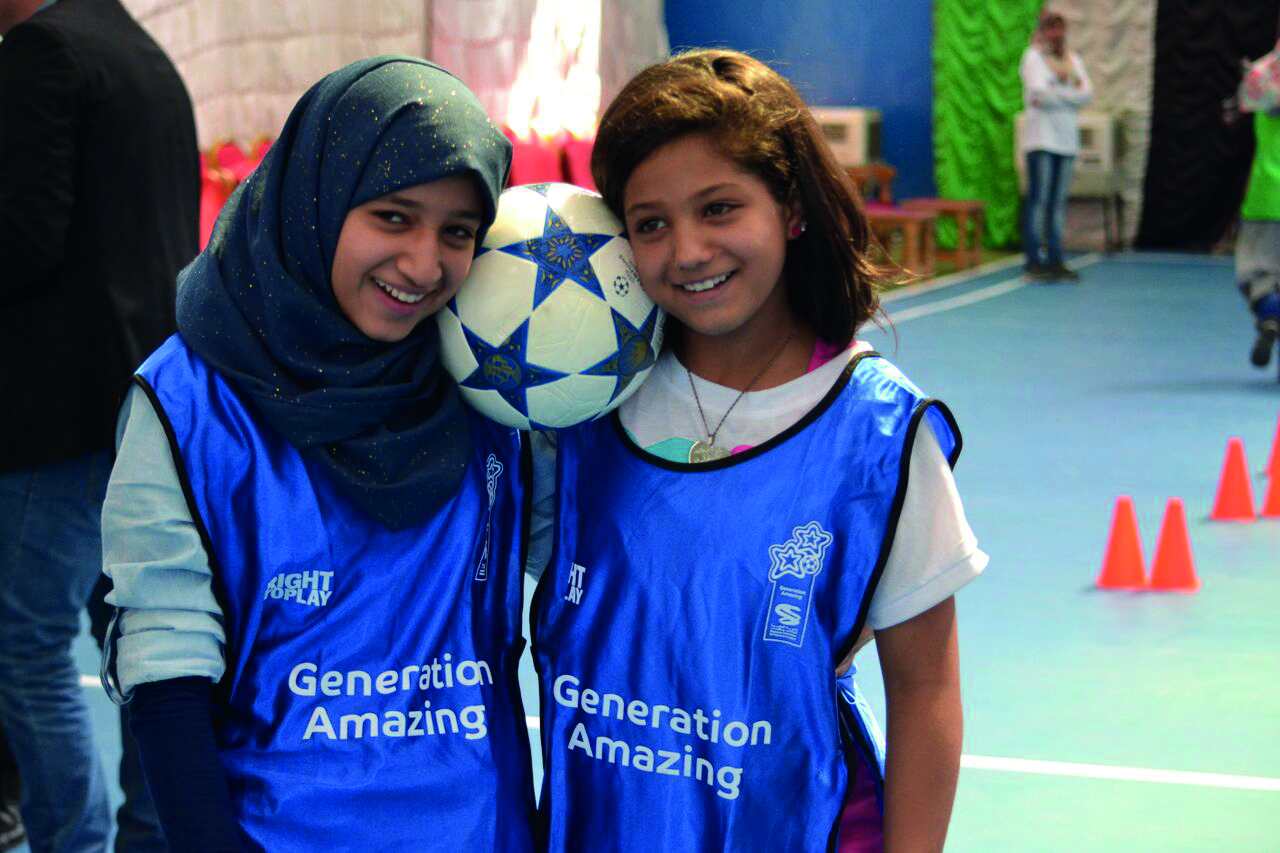
This includes our beneficiaries of the programme in Qatar, as well as young people in the other countries we operate in Nepal, Pakistan, Jordan, Lebanon, the Philippines and India. Targeting vulnerable and displaced people, we empower a new generation of young leaders to transform their communities through sport.’
The project is important both for young people and migrant workers. She adds: ‘This is the first programme in the world which uses football to enhance the lives of workers both in Qatar and in their communities in Asia, giving back to those building our country. It fits perfectly with Qatar’s long-term vision to leave a lasting social, human and economic legacy from hosting the tournament, tangibly improving lives across our region and continent through the power of football.’
Recently, Generation Amazing ambassadors helped to support the disaster relief efforts in Kerala, India, after the area was devastated by severe flooding. Al Noaimi says: ‘That was a proud moment for me, as it showcased how far we have come with the programme, and the potential we have to achieve further significant results as we work together with our ambassadors and partners.
We have just recently celebrated the significant milestone of reaching over a quarter of a million beneficiaries across the world, which puts us well on the way to achieving our ambition of positively impacting the lives of one million young people by 2022.’
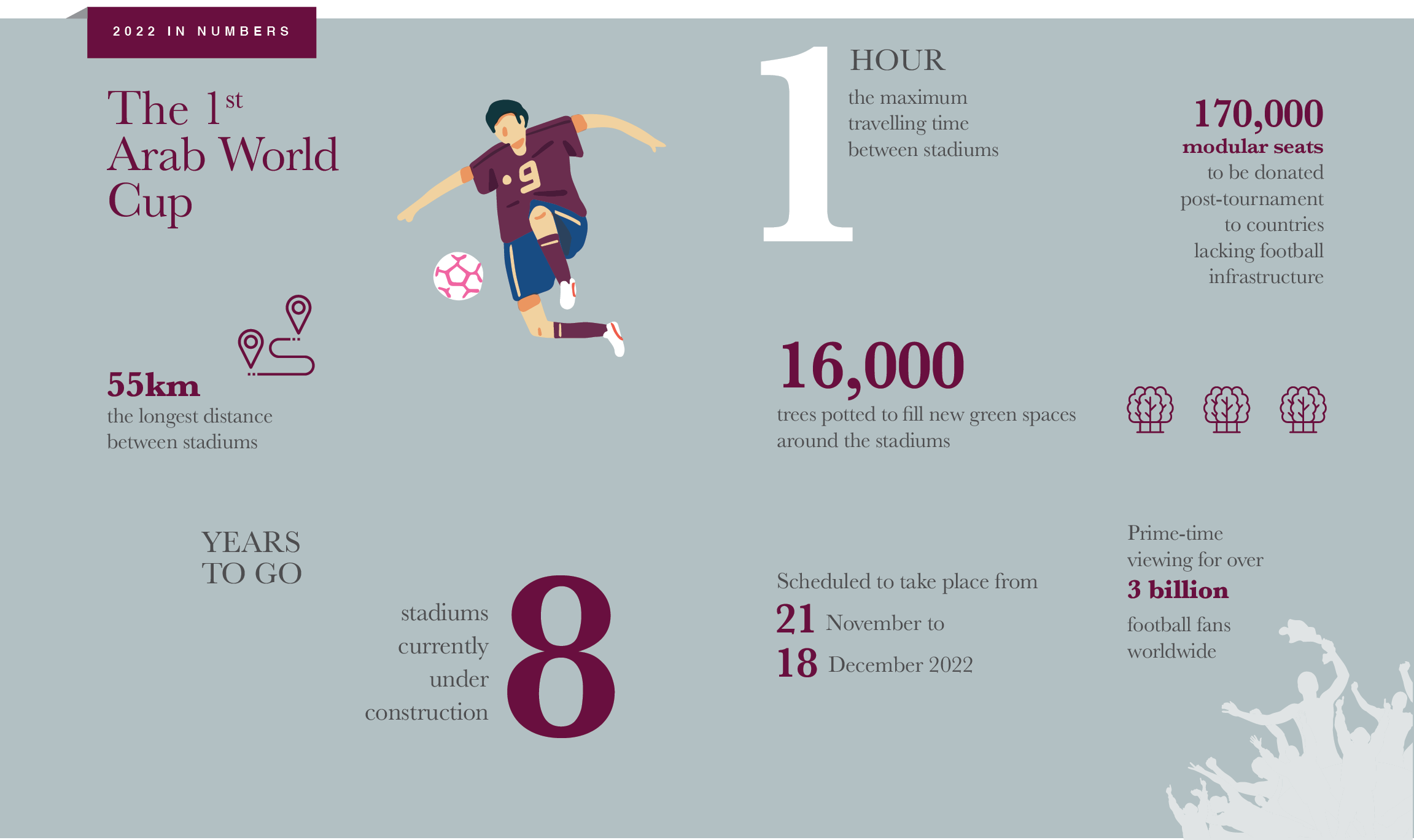
Qatar’s Digital Incubation Centre supports startups to help them grow and innovate in Qatar.
The Digital Incubation Centre (DIC) turns dreams into reality. Ask what they actually produce, and the answer will be innovation and success. Set up in 2011, the Digital Incubation Centre aims to support young entrepreneurs to transform their ideas into viable businesses.
They nurture the creation of new innovative digital startups in Qatar, helping young people learn essential business and commercialisation skills and develop their innovations.
Duha Albuhendi, DIC Manager, says: ‘We provide an array of targeted resources and services to entrepreneurs within the Digital Space, in order to accelerate the successful development of startups and fledgling companies.
‘By offering expertise, professional guidance, and services – including access to workspaces, business planning, training and mentorship, and legal counselling – we help innovators with emerging technologies to succeed.’
“Most of the startups join DIC with only an idea. We take them through a series of trainings and hand-holding support until they become mature businesses.”
Other services include networking and participation in local and international events, and access to a network of partners and business contacts. There is also access to investment forums and angel investors, free office space and shared facilities.
DIC offers its array of services for free to all of its incubated startups, helping contribute to the rapid growth of Qatar’s thriving digital economy. It currently offers four programmes for start-ups. There is the Ideacamp, a five-week programme for entrepreneurs, technologists, developers and designers who have a great idea for a technology solution.
Participants take part in a series of workshops, training and mentorship programmes to help them develop a business model, build a prototype and test their idea with customers, with the support of industry mentors and DIC staff. By the end of the programme, participants will pitch to join the DIC Startup Track to take the idea to the next level.
Then there is the ‘launch’ stage and ‘growth’ stage of Startup Track – each taking a year. The first year is structured around a set of milestones taking a startup from prototype to registered business in Qatar.
The second year is focused on growing the business. Startups with a business already launched can join the Growth Stage Program.
Additionally, there is the co-working space; startups and entrepreneurs with an idea for a technology business can use this space in preparation for joining one of the DIC Incubation Programs.
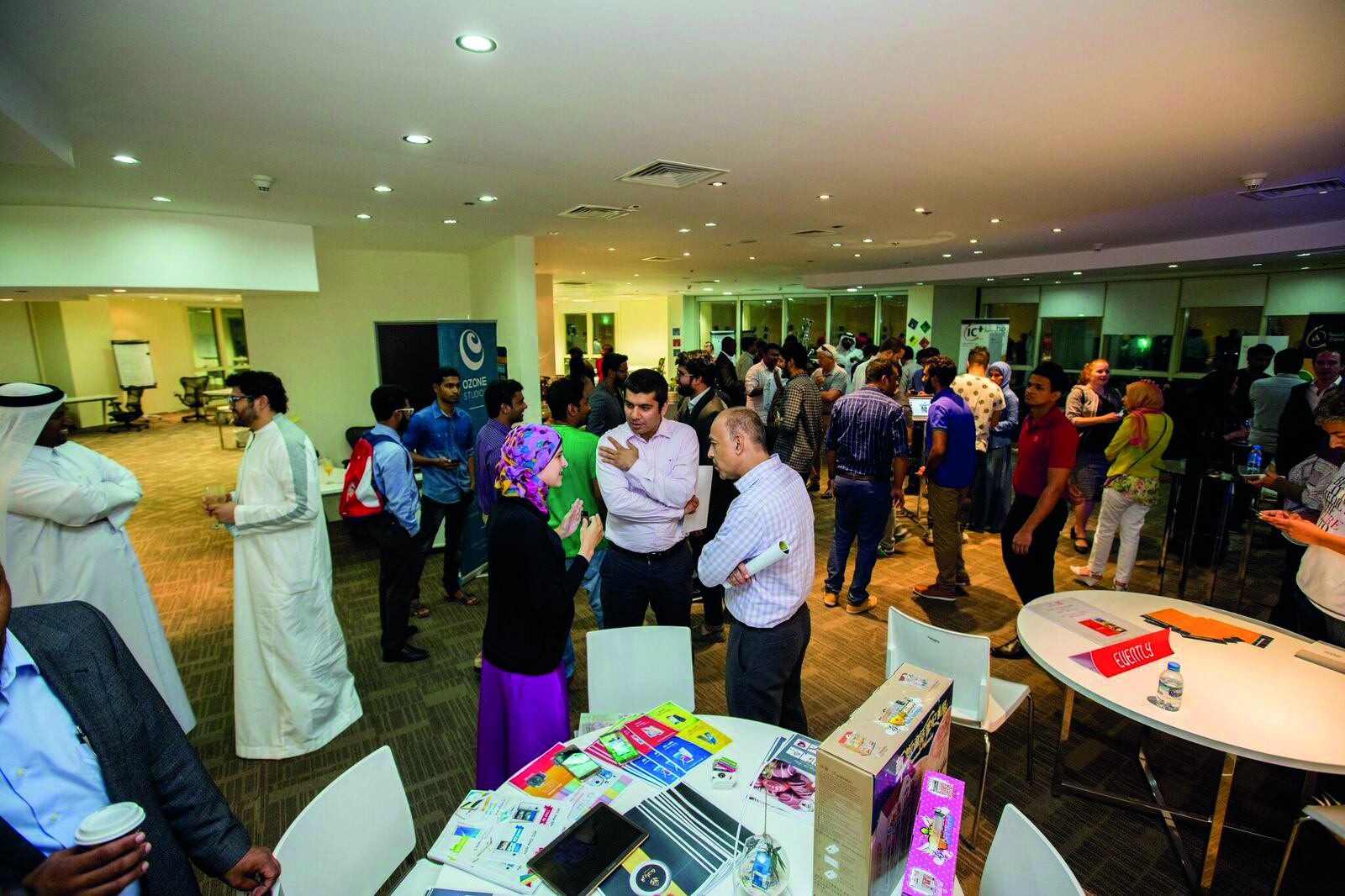
Albuhendi says: ‘Most of the startups join DIC with only an idea. We take them through a series of trainings and hand-holding support until they become mature businesses. Some examples of those startups that have joined as an idea and have now reached the growth stage include E-emdad, Applab, Wash Now, Magaza, FiTech, Urban Point and Meeddy. Some of these have graduated from DIC, others are about to do so.
‘As of today, DIC has supported 178 teams of entrepreneurs. Some 75 of them have reached the startup stage. Many of our startups have been successful in raising funds from local investors and international VCs and expanding to other markets besides Qatar. We are immensely proud of the successes our businesses have achieved.’
With the support of QBIC, At-Home-Doc is part of a global revolution that is expanding and securing access to healthcare
It used to be that a doctor would visit patients at home, paying attention to their ailments and giving them all the time they needed. Now, after decades of time-constrained care at healthcare clinics, we have come full circle.
Thanks to new technology, At-Home-Doc is providing medical attention at the tap of a button. A new generation of Qataris are being treated in the comfort of their own homes, without long queues or crowded waiting rooms.
Founder Hesham Elfeshawy explains: ‘At-Home-Doc is a mobile app, web page and toll-free number that brings doctors and much more to your home. At the push of a button, you can choose the medical service you need, be it a home-visiting doctor, nurse, physiotherapist, wellness coach or more. Not only that, we deliver medication and arrange laboratory home services.’
‘Qatar is the natural seedbed for a pioneering medical concept,’ he says, ‘it is ranked top of the list for best healthcare systems in the Arab world and amongst the top 10 globally.
‘Best healthcare outcomes have always been a top priority in Qatar. But convenience is also important. Imagine your child gets a high fever in the middle of the night, what would you rather do? Pick up your car keys and drive to the nearest hospital and wait with other sick people, or talk directly to a doctor on the phone?
‘This is all about creating an alternative pathway that offers accessibility and affordability to quality healthcare. When we are sick, we feel we should be the centre of attention, and with At-Home-Doc, that is exactly what happens.’
At the same time, this service reduces the pressure on A&E centres – where at times 80% of those presenting themselves are not emergencies.
At-Home-Doc has seen over 13,000 patients since it was founded in 2017. It is often paid for by insurance companies, and provides free follow-up calls and visits.
Initial calls are passed to a triage nurse to be assessed for urgency.
Over time, Elfeshawy believes the service will reduce state healthcare costs. ‘Catch a USD$ 10 problem in time, and it won’t turn into a USD$ 100 treatment plan,’ he says.
The company has been supported by the Qatar Business Incubation Centre (QBIC), and is growing 21% month on month, with a Net Promoter Score higher than Amazon’s.
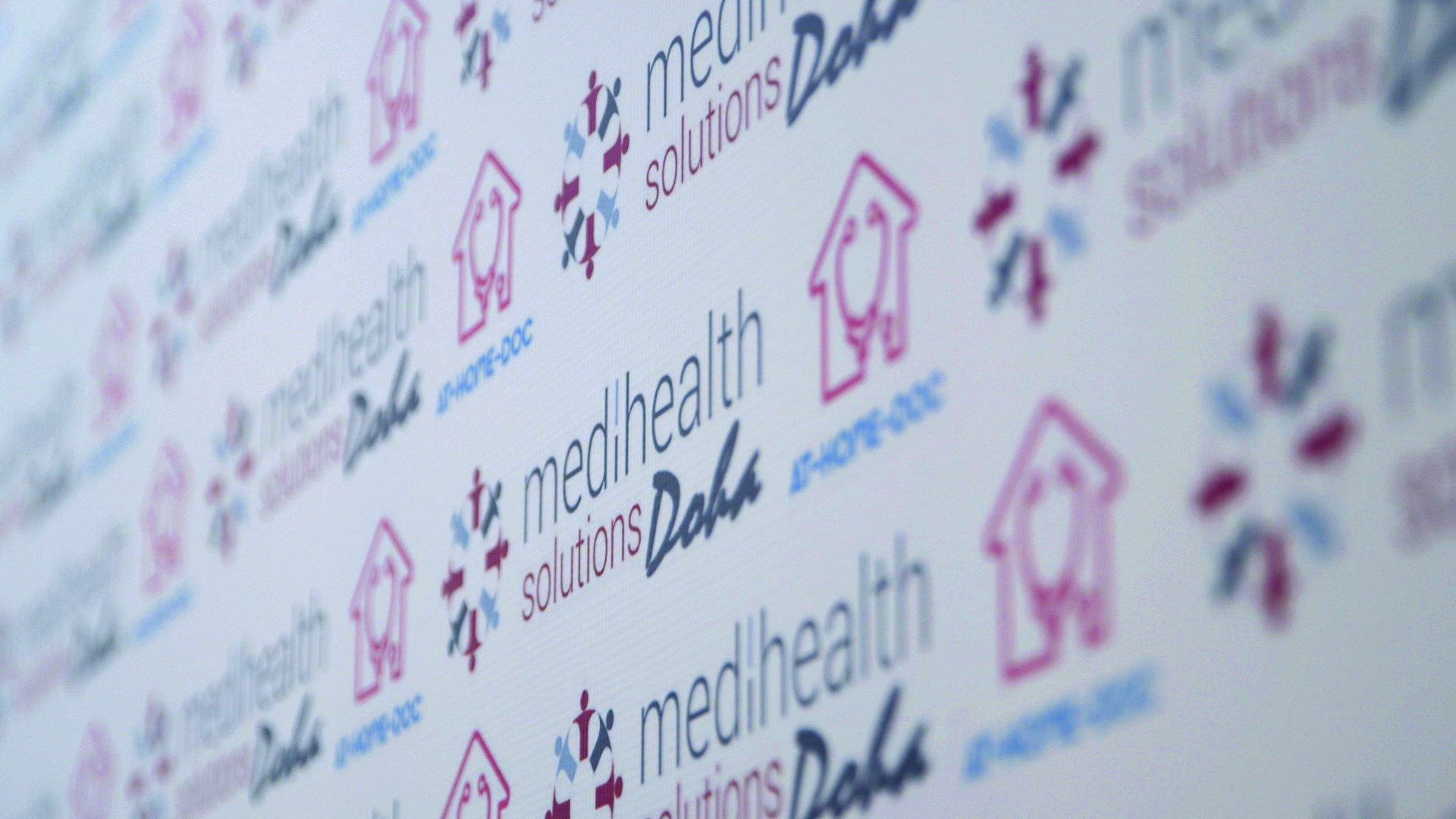
At-Home-Doc has already found some novel applications. A shipping company with vessels passing through the Gulf has called on At-Home-Doc at sea, because its staff members did not have visa requirements to easily come on shore.
Elfeshawy, who co-founded the company with his doctor twin brother says: ‘That was an interesting project, we had to go out by boat and examine people in the middle of nowhere. Crew members were sick, but we were able to give them the right treatment quickly and in comfort.
‘Cruise liners also contact us with the same type of requests. We are happy to provide a very versatile service.’
There are other pressing needs. Around half of the world’s population has no direct access to a doctor, so At- Home-Doc could revolutionise healthcare in these areas, saving lives.
Recently, At-Home-Doc had an online live chat with a man in Africa, whose young son had fallen and hit his head. The doctor was able to give the right advice, so that the child was treated effectively.
Elfeshawy says: ‘It’s like reinventing the wheel. Doctors used to visit people in their homes, and that changed. But often a clinical setting is not required. Telemedicine offers huge and potentially really important changes. The value of telemedicine is boundless.’
Mohamad Y Al Sulaiti PhD, Research Director at ExxonMobil Research Qatar, explains the objectives of the programme and talks about what makes dugongs such fascinating creatures.
What is significant about the dugong population in Qatar?
Qatari dugongs are part of a larger group found in the Arabian Gulf – which we think is around 6,000 to 7,000 individuals – and the second largest group in the world, second only to Australia. The largest aggregation of dugongs ever recorded was of the Qatari dugong – more than 670 animals. As recently as one hundred years ago in the Gulf, dugongs were hunted and used for food, leather, and as a source of oil.
Why and when was the programme created?
Dugongs are listed by the International Union for Conservation of Nature (IUCN) as “vulnerable”. We realised that there was a need to develop a better understanding of Qatar’s dugong population and how we could help protect it. So in 2014, an agreement was signed between ExxonMobil Research Qatar (EMRQ), Texas A&M University and Qatar University (QU). A great deal of our initial work has focused on examining stranded specimens, giving us information on the demographics of the population in Qatari waters.
ExxonMobil Research Qatar, in collaboration with Texas A&M University at Galveston and with support from Qatar’s Ministry of Municipality and Environment, is working on a major programme to study the conservation of Qatar’s dugong population.
What are the objectives of the research on Qatar’s dugong population?
The dugong is a fascinating species and we want to try our best to understand and protect it now and for generations to come. Dugongs help maintain healthy seagrass meadows, which are important fish nurseries, and a food source for sea turtles. They help ensure vegetative balance and a healthy ecosystem. They also add to the marine biodiversity of the region. They are facing a high risk of extinction – so I would say that we have three main objectives: to learn more about Qatar’s dugong population; to educate Qataris and those living in Qatar that these animals exist in our waters and are important to the ecosystem; and to ensure their longterm protection.
Since the inception of the project, have there been any significant findings?
We actually made an alarming discovery when we started fieldwork – a significant number of dugongs were dying and stranding on Qatar’s beaches. Fishing nets or ropes impacted some of these animals – sadly, they became entangled in them and drowned. So we hope to protect them from these dangers.
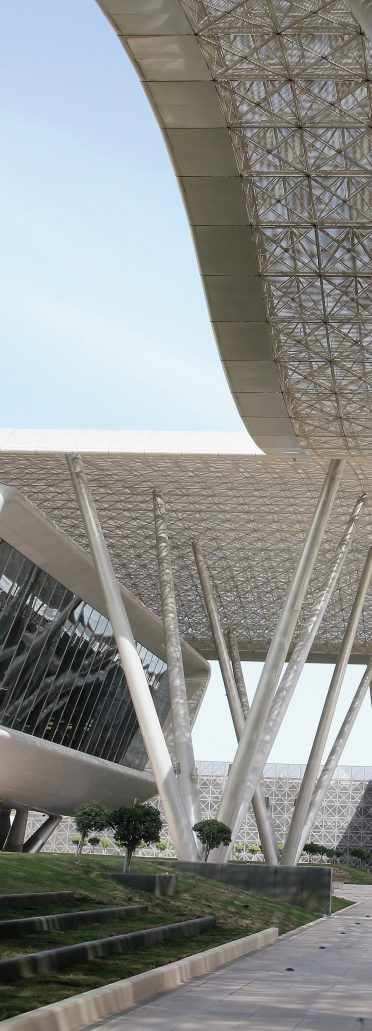
ExxonMobil Research Qatar is based in Qatar Science & Technology Park. QSTP is an incubator of start-up technology businesses and a hub for technology companies in Qatar, and is also the country’s first free-trade zone.
It was inaugurated in March 2009 as part of Qatar Foundation (QF). The purpose of QSTP is to be an international hub for science and technology innovation, tech based entrepreneurship and high-tech businesses, and spur the development of Qatar’s knowledge economy.
QSTP’s Mission:
Support tech-entrepreneurship ventures in Qatar through incubation, funding, training, mentorship, and connection to the wider regional and global tech innovation field.
Accelerate innovation within the private sector thanks to programmes and grants that encourage new product development, innovation and collaboration with QF’s research institutes.
Create an environment ripe for innovation and collaboration by attracting and supporting tenants focused on development of tech-based products and services and the commercialisation of scientific research.
The CEO of the World Innovation Summit for Health (WISH) aims to make Qatar a hub for healthcare innovation, spreading its knowledge globally through international partners
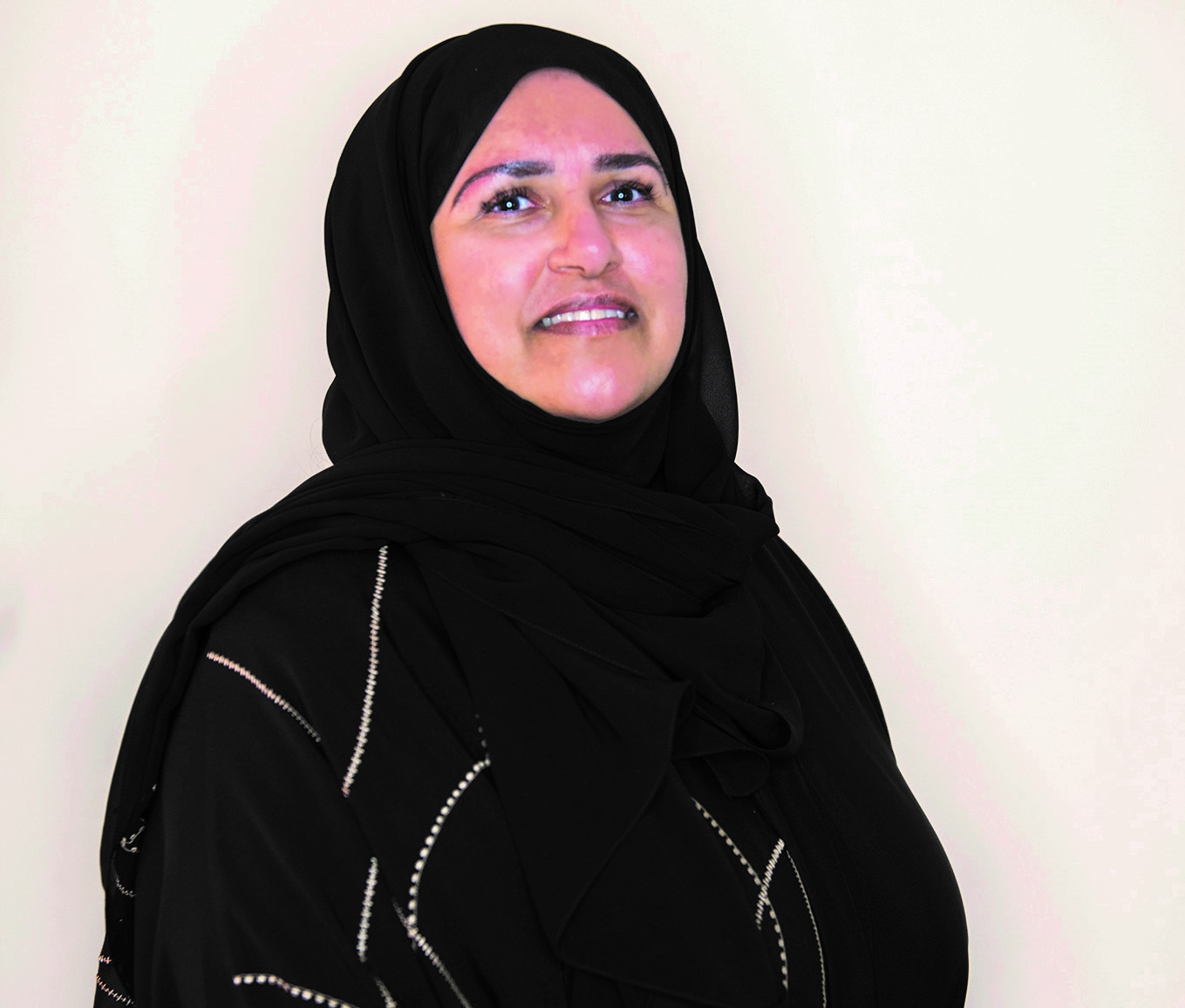
What are today’s most pressing health challenges?
Non-communicable diseases (NCDs), which are classed as medical conditions or diseases that are not caused by infectious agents, are today’s most pressing healthcare challenges. These include diabetes, cancer, and heart disease. With an increasingly aging population globally, the burden of diseases associated with old age such as dementia are increasing for societies and healthcare systems across the world.
How does WISH work to address these challenges?
A majority of these diseases are preventable, with common causes including tobacco use, which leads to cardiovascular disease; poor diets that revolve around high consumption of sugar and fats; and physical inactivity contributing to diabetes. Educating the community to become more health literate, by stopping smoking or reducing salt intake for instance, is key to well-being.
What are WISH’s objectives in Qatar?
We aim to continue to influence healthcare policy through our evidenced-based research reports, such as those on dementia, autism, and accountable care, which have all been part of key national health strategies in Qatar.
And what are its international objectives?
The vision for WISH is to help make Qatar a beacon for healthcare innovation by bringing together global healthcare experts to share and discuss solutions to healthcare challenges in Qatar. Our summits not only convene expertise to Qatar, but give international delegates the opportunity to learn about the innovation that is flourishing here. We are increasing our footprint on the global stage by finding new partners – for example the Children’s National Hospital in Washington, D.C.
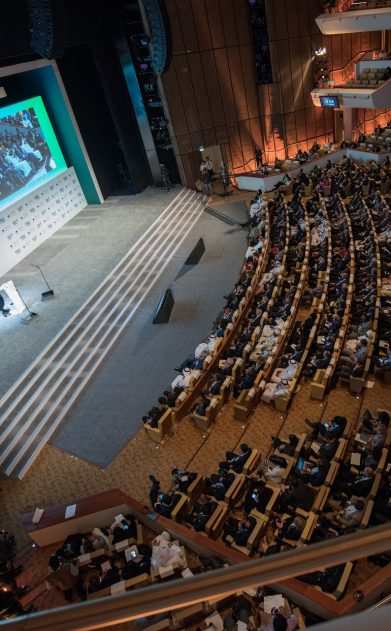
The World Innovation Summit for Health (WISH) brings together around 2,000 healthcare experts, innovators, entrepreneurs, policymakers, and ministers from over 100 countries.
Organised in Doha, Qatar, the Summit provides a platform for this community to collaboratively achieve one goal: a healthier world.
WISH also creates and disseminates world-class, evidence-based content and knowledge, and helps build action-driven communities who work together to address today’s most pressing global healthcare challenges.
How and why is WISH best equipped to lead the global community in medical research and knowledge sharing?
Our team is small and agile, and our network is extensive, so we can rapidly call upon experts from around the world with specific knowledge wherever necessary.
How has Qatar succeeded in creating an environment conducive to innovation in healthcare?
Qatar will thrive in the field of healthcare innovation because there’s an appetite for improving health and well-being, whether from communities that benefit from healthcare innovation or healthcare professionals.
What is your favourite aspect of your job?
Engaging with members of the local community in seemingly simple things. For example, arranging for children with autism to go swimming and horse-riding during the summer period when they have nowhere to go, is incredibly rewarding.
What is your proudest achievement with WISH? Can you explain?
That recommendations from our reports are being used to better shape healthcare policy around the world. I am also proud of the work we’ve done with international partners, such as the Carter Centre, training journalists on how to ethically report on mental health issues, or the Liverpool FC Foundation, working to train football coaches on how to better include young people with autism in sport.
What would you like to achieve at WISH in the next five years?
“Globally, I’d like for WISH to become a platform that is recognised as the premier healthcare summit to have innovation as a key feature, and for it to become synonymous with open discourse and fresh ideas. Locally, I want WISH to become a trusted research and policy centre that works closely with key stakeholders to shape and influence healthcare.”
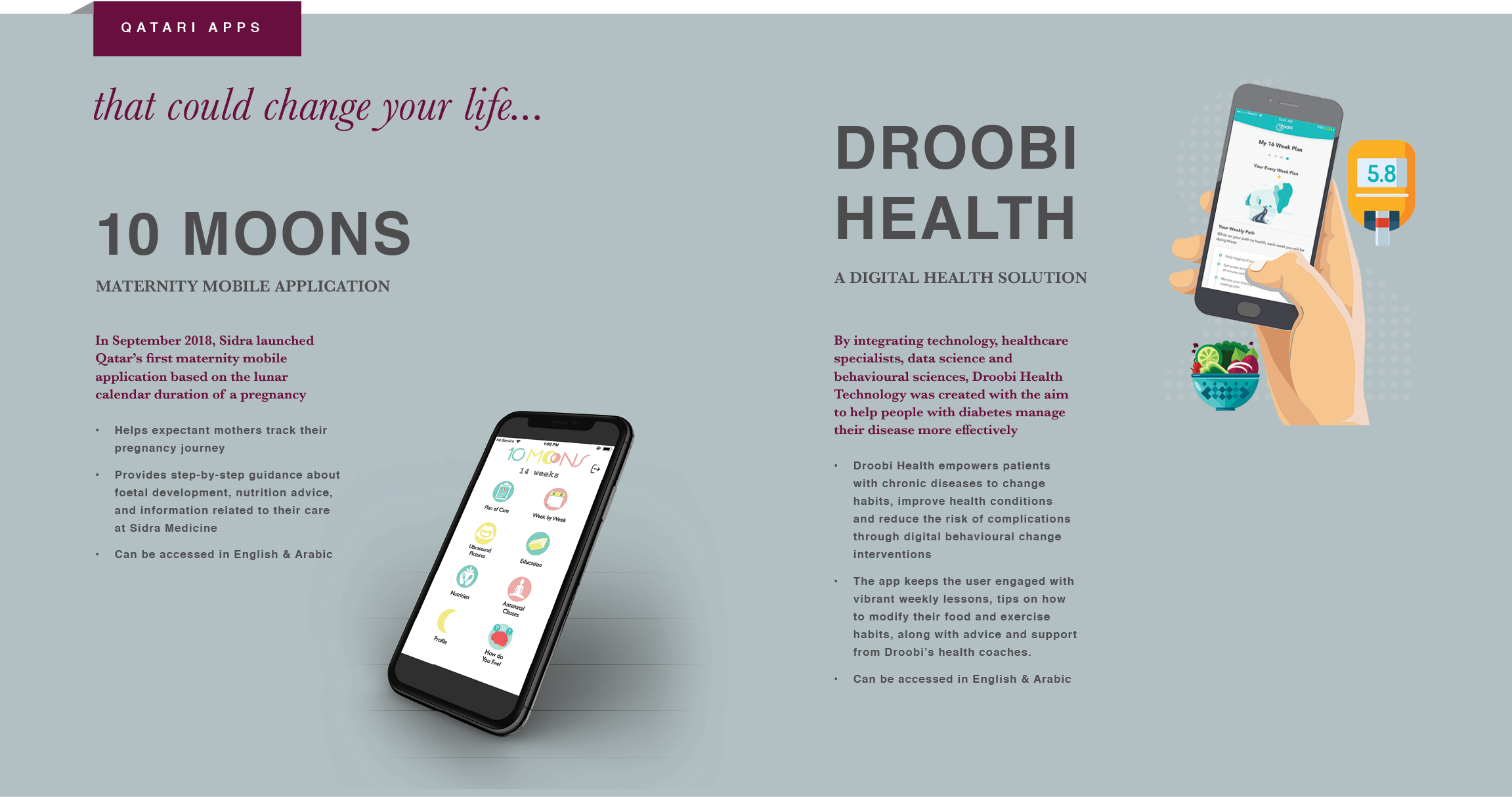
Stars of Science has become an essential platform for the next generation of innovators in the Middle East.
Why is Stars of Science an essential concept in Qatar and the greater Middle East?
Arab youth look up to the Stars of Science alumni who have since gone to establish businesses or become serial innovators, raising over USD$ 14 million in revenues, grants, and crowdfunding to support their business and winning countless awards. They give back to their communities by supporting and mentoring other young people, sparking optimism for a bright future.
How does Stars of Science reflect Qatar’s greater aim to inspire younger generations?
The show is bold in its statement that there is no exclusivity on innovation. Anyone can innovate regardless of their origin or circumstances. In the era of nanotechnology, information, and the Internet of Things, achieving your dreams has become easier. Some of the greatest ideas can now be realised using the smallest and cheapest tools.
Stars of Science is a TV competition, created by Qatar Foundation and first aired in 2008 to foster innovation in the Middle East. The show follows nine innovators from the Arab world over a 10-week process, where an expert panel of jurors assesses and eliminates candidates until only four finalists remain to compete for USD$ 600,000 in seed funding.
Why did you become a juror on Stars of Science and what does your role entail?
I have always been on the lookout for platforms that allow me to connect with large swathes of young people across the world, inspiring them to reach their potential. Stars of Science is unique, supporting Arab innovators to develop a prototype for an idea they believe will solve a problem.
The jury has a huge responsibility. Think of us as Sherpas guiding this person who is climbing their own Everest. Those who are worthy to reach the peak usually make it to the top and those who do not usually make it, back down and try again. I’ve observed life-changing stories.
We have contestants from all over the Arab world, including war-torn countries. For those who are finding it difficult to turn their dream into a reality, we offer a way.
Is there something people may not know about the role of the juror?
The amount of background research that goes on behind the scenes is incredible. We are looking for people who will inspire a generation and be role models within their communities and countries, so it’s as important that they have the right attitude as well as having a strong idea.
How does your background working at NASA and starting your own Silicon Valley company equip you for Stars of Science?
I lived in America for 22 years, 17 of those in Silicon Valley and 10 of which were at NASA, where I worked with some of the brightest minds on Earth. At NASA, I worked on launching two spacecraft and designed and built intelligent robots and drones. This provides a unique vantage point and equips me with the necessary tools to carry out this important role.
Are there any participants who were particularly memorable?
Fouad Maksoud, the winner of season nine. Witnessing his journey from his first pitch as a relatively unknown lab scientist to a true ‘Star of Science’ who has inspired a generation highlighted the power of the show to me. He developed a ‘Nano-shielding Textile Machine’ that applies petrochemicals and pharmaceuticals to ordinary textiles. The machine can make clothing waterproof, or integrate healing medicine within the very fibres of bandages. Fouad continues to give regular talks in schools and his innovation has been included in school curricula across Lebanon.
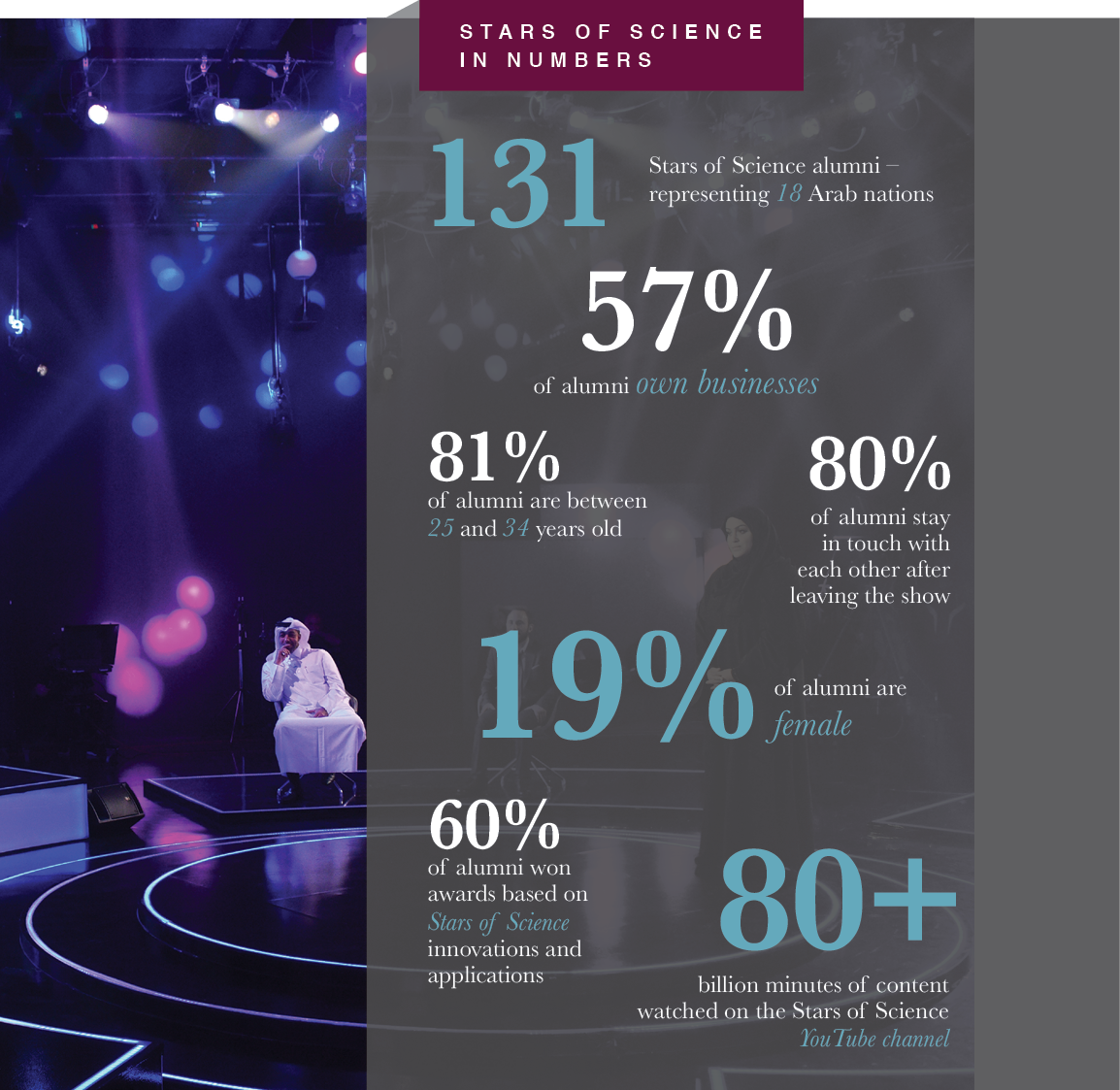
Nayla first realised her passion for giving back to education while studying in New York, having won an all-expenses paid scholarship from Qatar’s Higher Education Institute to pursue a masters course at Columbia University.
“It is because of education that I was able to have access to intellectuals and widen my knowledge. It was then and there, in a classroom in Upper Manhattan, that I recognised how important it is to give back to education, and give back to my country that has provided me with this opportunity”, she says.
With her studies completed, she returned to Qatar aged 22 and embarked on a career in teaching with the help of the Teach for Qatar NGO. Having overcome the challenging and sudden transition from student to teacher, Nayla is now nearing the end of a two-year fellowship programme known as the Leadership Journey, teaching English at a public preparatory school for girls.
“I believe the core of education is the classroom”, Nayla says. “Being a teacher and having access to 70 young minds, the future leaders, is both an incredible responsibility and opportunity”, she explains. “Every single student has the power to influence the circle around them, thus creating a domino effect where essentially what they learn in school is evident in the community”.
As a young female teacher, Nayla is one of many Qatari women leading the way in championing greater gender equality and female empowerment. She says that for her, “the traditional stereotype” of women as housewives is being “replaced by a societal expectation for women to work and put their education to use”.
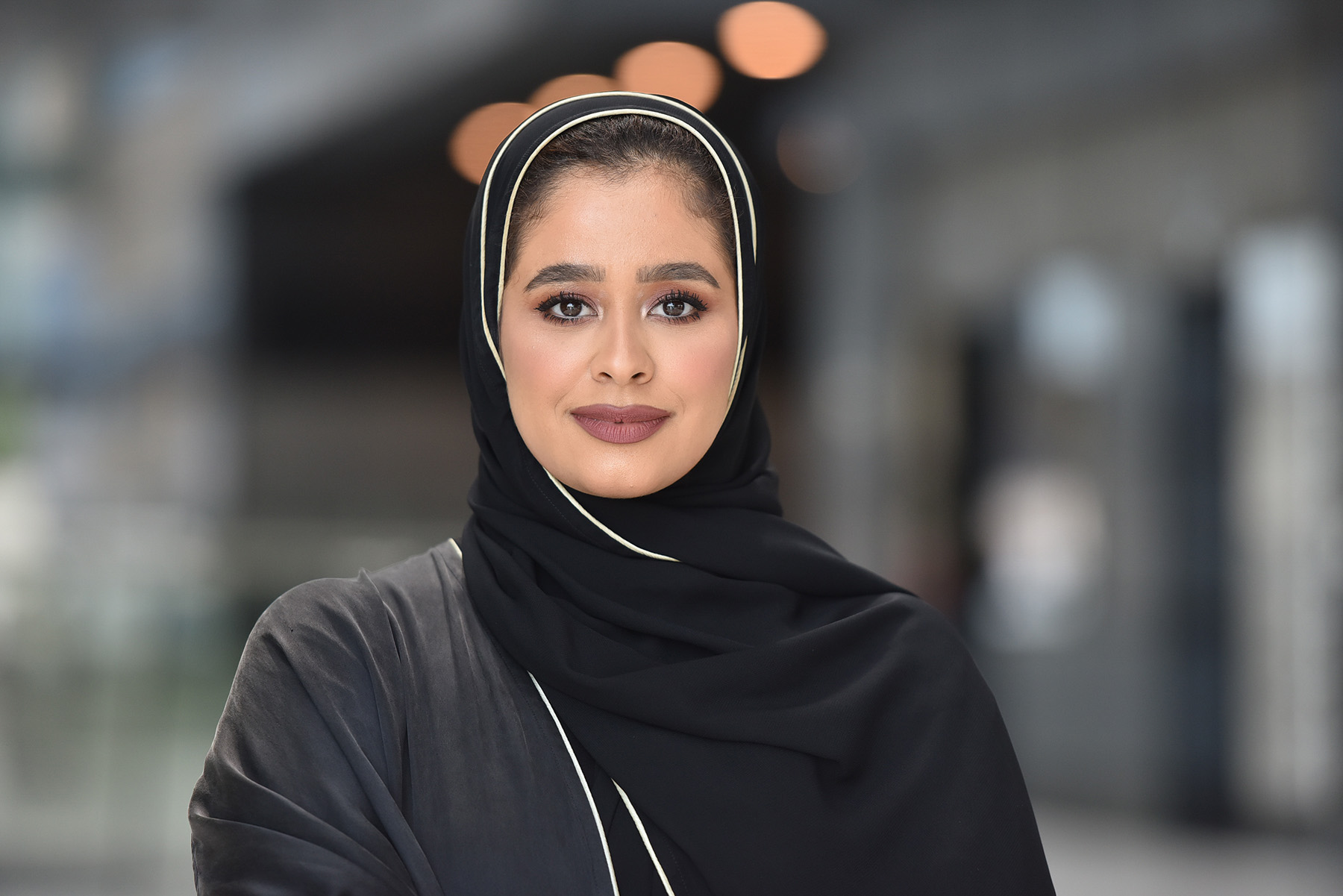
Statistics show that there is a higher percentage of female than male students in Qatar Foundation universities, and Qatar’s education system plays a fundamental role in this.
Nayla further credits the Qatari setup for giving her the opportunity to pursue her teaching career: “I believe the opportunities I’ve created for myself, my country has facilitated…my decision to complete my masters for example was facilitated by the Higher Education Institute’s scholarship programme”.
Qatar invests heavily in education in pursuit of the knowledge-based economy that forms a key component of Qatar’s 2030 National Vision.
When asked about her personal vision for the future, Nayla responds: “my vision is to see more Qataris leading the classrooms and conversations surrounding education”.
She finds herself inspired daily by countless women in Qatar who set an example for others, such as businesswoman Sheikha Hanadi Bint Nasser Al Thani, Ministry of Foreign Affairs spokesperson Lolwah Al Khater, and artist Bouthayna Al Muftah.
Nayla herself is proof that a new generation of educated and industrious Qatari women is well-prepared to further the inspirational work of these female figureheads, and drive transformational change within communities.
Besides being a Senior Consultant at the Women’s Wellness and Research Centre (WWRC), Dr. Salwa Abuyaqoub is also WWRC’s Vice Chair of Education, the Residency Training Programme Director, an Assistant Professor at WCMC-Q, and Clerkship Director at Qatar University. Quite a range of hats to wear simultaneously!
Dr. Salwa commends Qatar for giving her “immense opportunities” to pursue her professional passions, and works hard to support and give back to the community in return. Part of her role as Vice Chair of Education at WWRC involves promoting healthcare in Qatar “by building a backbone structure for education and training for both residents and faculties”.
“I have been fortunate to get good opportunities for education and career advancement throughout my life”, she says. “I make sure that now I am supporting medical students and future doctors in education and training, just like how my seniors supported me”.
Dr. Salwa is positive about the future of Qatar, remarking that it is “promisingly bright” and how she is “excited and happy to be part of the amazing growth story that is happening right now”.
With Qatar’s 2030 National Vision focusing on creating a more equal and fair society, particularly for women, Dr. Salwa is a shining example of the success Qatar is seeing in putting its vision into practice.
“The social and economic advancement of women without any gender discrimination is a priority in the policy of Qatar” she remarks. “Today Qatari women are at the forefront and play a pivotal role in all walks of life.”
However, it hasn’t always been easy. “During my university days, I had to face some cultural resistance, as it was not common for single ladies to study abroad. Later, when I started working as a doctor, the night shift was sometimes difficult”.
She credits her family with helping her overcome these barriers. “My parents considered education to be of the utmost importance and always encouraged me to study as much as possible”, she says. “My biggest strength and inspiration is my father, who had a clear vision about the importance of education and careers. He always advised me to make the right decision and choose correct career paths”.
At WWRC, Dr. Salwa is heavily involved in providing education and training to others, yet she remains dedicated to improving her own learning, attending courses and career-related workshops outside of work in a testament to her continuing drive. “On my career front, I am proud and feel grateful to be working in one of the most respected professions and with great institutions”, she adds.
Dr. Salwa names Her Highness Sheikha Moza bint Nasser as her biggest inspiration: “she is a true role model, not only for Qatari women, but also for everyone else”.
A prominent figure in Qatar’s Armed Forces, Doaa Al Fayadh serves as a Lieutenant Colonel and heads a department focused on handling behavioural and psychological difficulties.
She did not always envisage a career in the Armed Forces, but several years ago Doaa decided to rise to the challenge and enter a field completely different to that which she had previously known.
“In this field you should be strong, patient and able to withstand physical and psychological pressure”, she says. “Moving from the life of a civilian to a military life is not easy”.
An empowering environment is key to a person’s growth, evolution and progress, and Doaa recognises that in the way Qatari society operates. For her, “women in Qatar are given many opportunities that enable them to stand out and demonstrate their full potential and excellence”, indeed that allow them to thrive above all expectations.
“Personal diligence and hard work are qualities which help a candidate get the right opportunity”, she adds.
Despite her success as a woman in the military field, Doaa believes her role in society starts first and foremost with being a mother. “Mothers have a great impact on surroundings which in turn affect the wider community, no matter how simple that role is”, she says.
When pushed on her personal views regarding female empowerment, Doaa again returns to the importance of improving one’s skills and knowledge as an individual, then as a professional, to ensure both the development of a career and in turn have a positive impact on the community.
Women occupy a central role in Qatari society, whether as professionals, leaders, entrepreneurs, or as mothers. This paves the way for new generations to themselves occupy crucial roles and further elevate the status of women throughout society.
From the heart of Qatar’s military, Doaa is at the forefront of this inspiring charge.